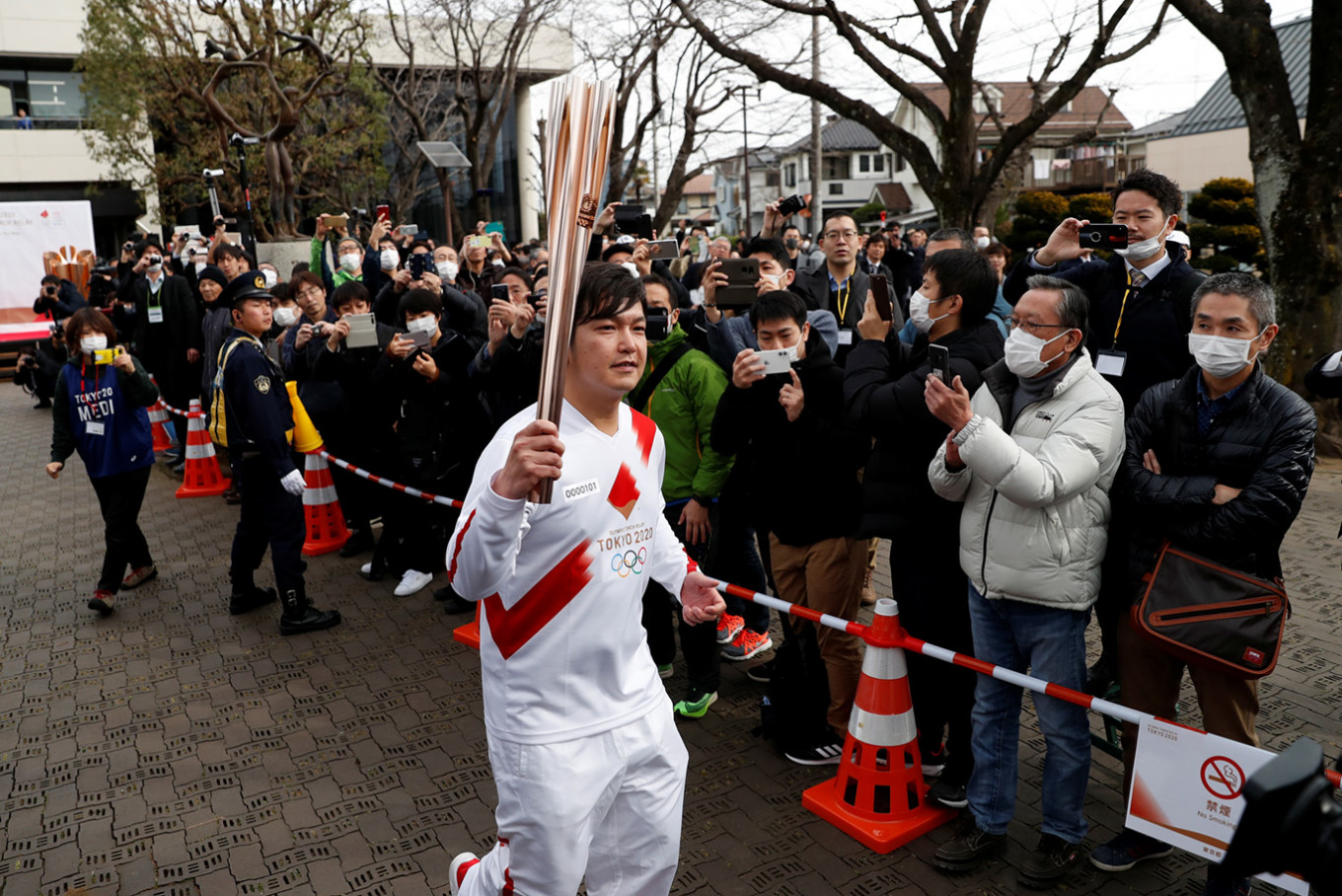Popular Reads
Top Results
Can't find what you're looking for?
View all search resultsPopular Reads
Top Results
Can't find what you're looking for?
View all search resultsTokyo Olympic torch relay may be suspended if large crowds form
The committee said it will encourage fans to watch live online broadcasts of the 121-day event, starting March 25, to prevent overcrowding on roadsides. Those watching in person are asked to wear face masks and keep their distance from other spectators.
Change text size
Gift Premium Articles
to Anyone
T
he Tokyo Olympic organizing committee released a set of coronavirus countermeasures Thursday for the nationwide torch relay leading up to the games this summer, including the possibility of temporarily suspending the event if large crowds form along the route.
The committee said it will encourage fans to watch live online broadcasts of the 121-day event, starting March 25, to prevent overcrowding on roadsides. Those watching in person are asked to wear face masks and keep their distance from other spectators.
Torchbearers will be required to monitor their health and complete checklists for two weeks before taking part in the relay, it said.
Speaking at an online press conference, organizing committee president Seiko Hashimoto said the steps were necessary to ensure the safety of spectators and relay participants.
"As we prepare (for the relay), it is very important that we prioritize safety and take sufficient measures against the coronavirus," Hashimoto said.
The domestic leg of the relay for the Tokyo Games, which were postponed for one year due to the coronavirus pandemic, will kick off at the J-Village soccer training center in Fukushima and pass through Japan's other 46 prefectures before the opening ceremony of the Olympics on July 23.
Celebration events with live performances and exhibition booths will be held at the end of each day of the nationwide relay, but the committee said it will require people to make reservations beforehand, in principle, to enter the venues.
In December, the organizing committee said about 10,000 runners will carry the torch through 859 municipalities across the country's 47 prefectures, with the itinerary unaffected by the rescheduling of the games.
The relay is scheduled to pass through World Heritage sites and areas devastated by recent natural disasters, including the March 2011 earthquake, tsunami and subsequent nuclear disaster in Fukushima Prefecture and other areas in northeastern Japan.
The flame arrived in Japan on March 20 last year after it was lit in ancient Olympia, Greece. However, International Olympic Committee chief Thomas Bach and then Japanese Prime Minister Shinzo Abe decided just four days later to reschedule the games.










